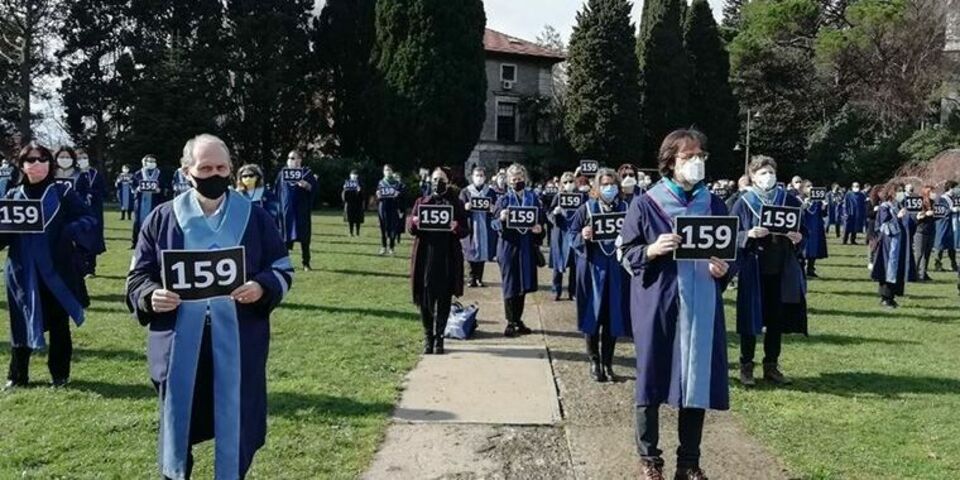Struggle for academic freedom flares up in Turkey
On Monday night, 159 students were taken into custody in Istanbul in protests against the new rector of Bogazici University. The students see his appointment as President Erdogan's latest attempt to restrict academic freedom in Turkey. A Turkish bachelor's student of Bogazici University who started his master's at TU/e in 2019, talks to Cursor about the current situation.
The new rector, Melih Bulu, is known to be Erdogan’s political ally. Immediately after his appointment at the beginning of January, protests broke out on the University's campus. The police put down Monday's protests using tear gas, rubber bullets and a water cannon, and were said to have arrested a number of protesters that night.
But the students have not given up. They have been organising daily protests on several university campuses, with the support of researchers and other staff members. It is alleged that two students were wounded on Monday night.
The protesters fear that the new rector will put an end to liberal campus culture, academic freedom and institutional independence, for which Bogazici University has been a beacon until now.
Handcuffs
“Bogazici University is one of the most free, tolerant and safe spaces in Turkey, where students from different cultural and religious backgrounds exist together peacefully. For example, it is the first university in Turkey to have an active LGBTI+ student club.” Words spoken by an anonymous (known to the editors) master’s student at Eindhoven University of Technology, who informs Cursor about the situation from Turkey.
He obtained his bachelor’s degree at Bogazici University. He is shocked by the policy brutality against protesters. “At a certain point, they even handcuffed the university campus doors, trying to prevent more students from entering the campus. That disgusting picture will be in the history books for sure.”
Traditionally, academic scholars at Bogazici University elect a new rector from their own ranks every four years, the master's student explains. After this election, the president of Turkey officially appoints the winner as rector. Erdogan broke with this tradition in 2016, when he decided not to appoint the winner, but another scholar from Bogazici University instead. This led to great frustration among students, but it didn’t result in any major protests at the time.
Melih Bulu, the rector who was appointed next by Erdogan in 2020, isn’t even an academic at Bogazici University, he says. “In addition, he published a very questionable PhD thesis, in which he appears to have committed serious plagiarism and academic fraud.” That was the last straw. The academic staff has now for the first time joined the students in the protests. Each day, the academic scholars turn their backs to the rector’s office for half an hour.”
The size of the current protests is enormous, he says, and a trending topic on social media in Turkey every day. “However, the mainstream media, which are generally very closely linked to Erdogan, tries to downplay the protests, and even accuses protesting students of being terrorists.”
Coup
The protests did not come out of the blue. Academic freedom has come under increasing pressure in Turkey in recent years. After the attempted coup of July 2016, President Erdogan ramped up control. He closed dozens of universities and fired thousands of faculty and researchers. They were accused of spreading propaganda or belonging to a “terrorist organisation” headed by spiritual leader Fethullah Gülen.
Of the researchers dismissed from their posts, an estimated three thousand were sitting at home without work at the end of 2017. Some of them tried to flee abroad, including to the Netherlands.
Solidarity
Internationally, including in this country, public protests have been organised in their support. Last Saturday, students at Rotterdam University College demonstrated at the Hofvijver in The Hague. And today the Groninger Studentenbond (GSb) organised a demonstration to show their solidarity, which drew an attendance of around thirty. They are calling on Dutch universities and the Ministry to condemn the arrests and come out in defence of academic freedom. “Up until now it has been eerily silent”, said GSb chairperson Marinus Jongman.
Using hashtag #StandwithBogazici, students can post pictures of themselves holding a sign with the number 159.




Discussion